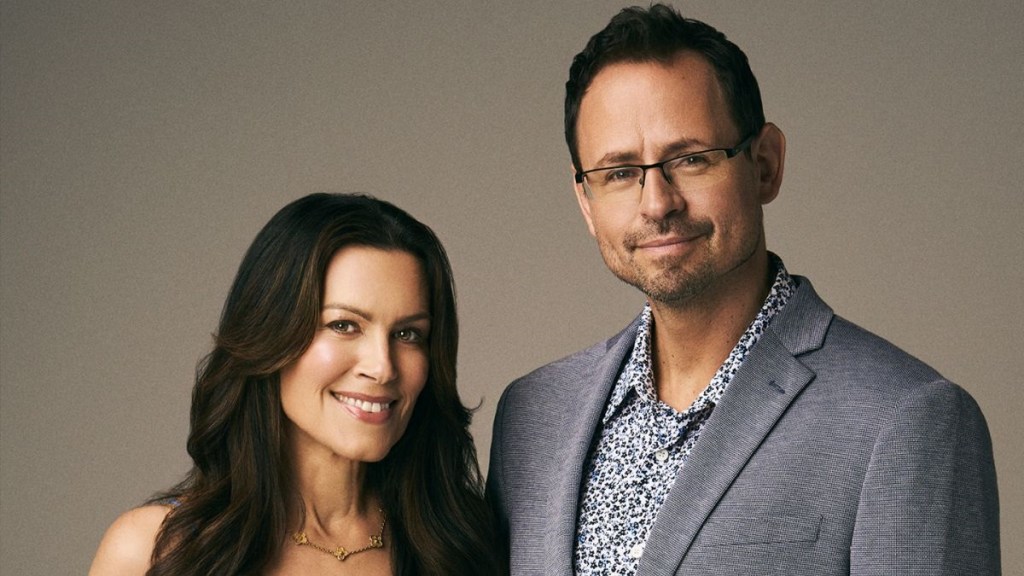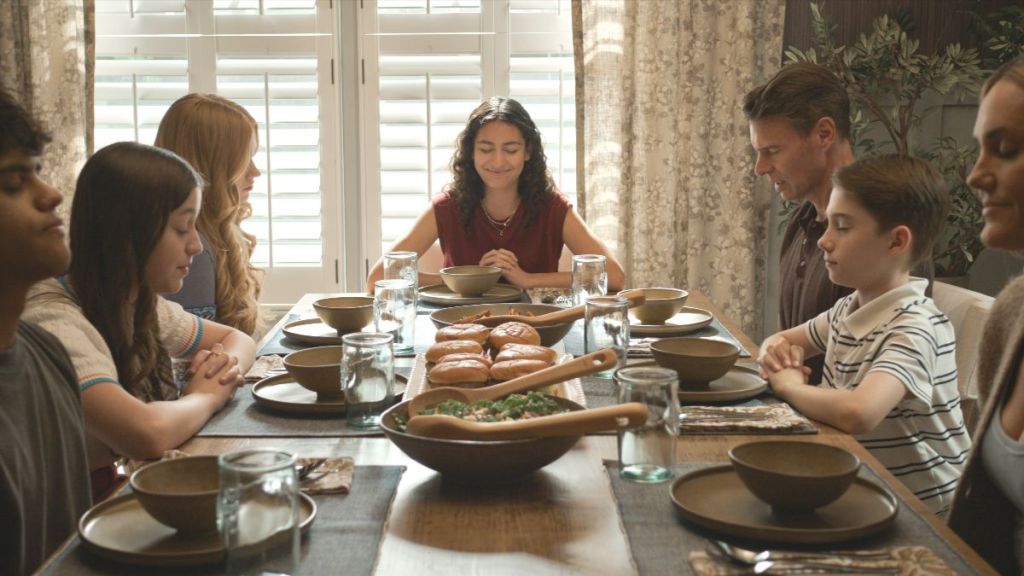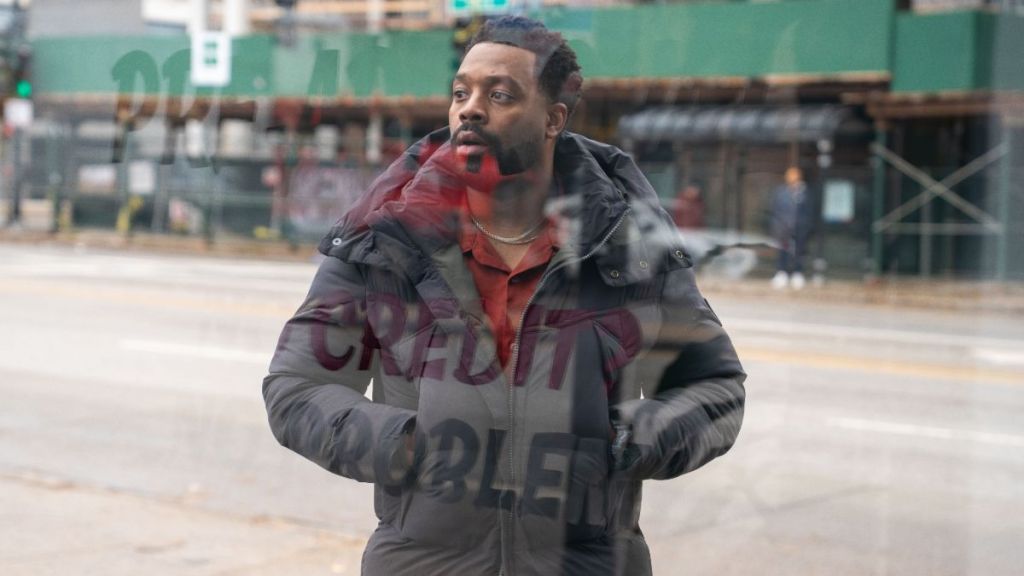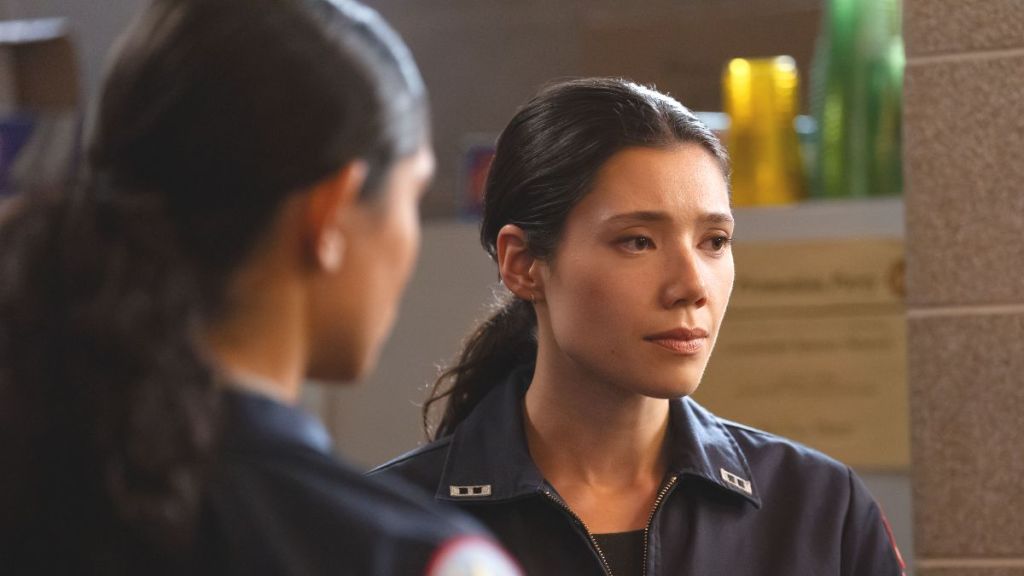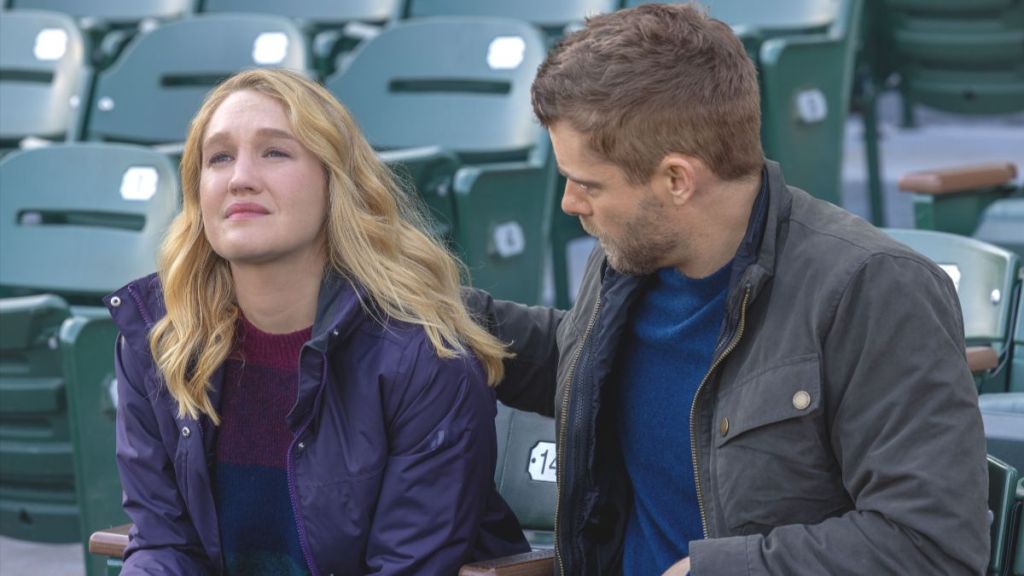It takes a lot of people to make a movie, and it takes even more effort to make an independent film. Just ask Rich Ronat and Laura Vale, whose indie thriller Culprit is making the film festival rounds and recently beat out stiff competition for a space in Los Angeles’ Dances With Films festival. Rich made his directorial debut with Culprit, which he also co-wrote and produced, while Laura co-starred in the movie.
But their work doesn’t end there—the movie is the debut release for the duo’s Good Rebel Pictures. And it’s a shared experience for the pair, who are partners both on and off-screen. I recently spoke with Rich and Laura about how their professional relationship differs from their personal one, and the creative and logistical process they navigated to get Culprit off the page and onto the big screen.
Brittany Frederick: You’re far from the first couple to work together professionally, but what made you want to go that route? Given that getting along with someone personally doesn’t necessarily mean you work perfectly together.
Laura Vale: We really carry ourselves the same way at work as we do in our personal lives. We’re each other’s number-one cheerleader and we really want the best for one another. [We were] friends for over 20 years before we got romantic, so we really learned about the other person as an individual, separate from us… When you get together as two people whom you’ve seen have a separate life from you, you don’t go in with the same expectations.
Rich Ronat: You start from a very real place, which is good.
Laura: I was respecting him as a friend, and I still respect him as a friend, even though he’s my romantic partner.
But then you take this a step further in that you’re not just making a movie together, but you launched Good Rebel Pictures together. What motivated you to start a production company and also take on that extra commitment?
Rich: We both come from a lifetime dedication to show business. I was an actor for 12 years and then became a writer, and Laura’s been acting 20-plus years… We just decided to make our own way, wanting to do work that we felt was substantial and meaningful. I had six films made as a writer, and the visions of those scripts were never fully met by those directors in a way that I felt was deep enough or interesting enough. [Laura] took me to a screening, and it was such a bad movie that I really wanted to direct Culprit, because I was like we’ve got to do this ourselves. That way we can get the most meaning out of it.
Laura: It was a natural transition for you and your career. You [needed] to kind of step up to that.
Rich: It was such a great experience doing Culprit that I just want to do it all the time now. Do more and more good movies with great actors, and really put the story and performances first, with no other agendas attached. It was a great experience, and I want to keep doing it and evolving.
To that point, how would you describe a “good movie”? What are the aspects of filmmaking that you most respond to?
Rich: For me, it’s about really authentic performances, where I believe what the person’s saying within the character, but then it’s also having a story hook and plot I tend to like really good thrillers, a really good mystery, because I want to be into the story and want to know what’s going to happen next. I tend to get bored really fast. And because I’ve seen thousands of movies, old and new, if it’s just a character-based thing, it better be really compelling. It can be well done; I just lose interest.
I look for a balance of plot and character that really creates some kind of suspense. That’s why we want to do thrillers. I love a great story hook. I want [it] to be unexpected. I want to be taken a ride. I don’t want to know what’s going to happen next at all. Even if it’s the most intricate character study, if I can predict it, I’m bored.
Laura: Human behavior is the most compelling. If I’m really into the human experience, the experience the person on screen or on stage is having, that’s what really draws me. And also relational dynamics. One of my favorite movies I saw when I was very, very young was The Great Santini, and that’s probably one of my favorite movies still… Also Once Were Warriors, which is a New Zealand film, about how alcoholism and poverty really has affected a family. [I’m a] little bit more geared towards the psychological and relational entanglements.
So when it came to making Culprit, how did you tie both those aspects together—or did you?
Rich: I had a mix between a drama and a thriller, and I kind of knew it on the page. So when I shot it, I had two hours and 35 minutes of rough assembly, and I cut it down to an hour and 33. I took all the character drama out. Even though it was really well acted—like Laura’s [got] great scenes, really emotional and really had a lot of authenticity. It was, so good for everybody. [But] they didn’t further story. The story I was trying to tell was it being a thriller. But I could recut the whole movie as a family drama with a thriller subtext.
Laura: Some of the stuff that we’re proud of got cut out. [Laughs.] We had some very powerful scenes that had to be cut out. There was a more of a love story between the lead characters than what ended up in the final cut. There’s also more interaction between my character and my mother that ended up there.
Rich: The most thrilling thing for me [about[ this movie is that as you’re watching it, you really don’t know who the killer is. And I just love that—that kind of ongoing tension, that ongoing suspense… Pretty much everyone who doesn’t know anything about the script or wasn’t part of it has told me the same thing. They’re like, dude, great performances. But also, man, I was hooked.
Laura: That’s one thing I’m proud of Rich for and our editor and our producer, is the painstaking process it was to edit it. We had two editors—one who had to also pick up where the other left off, sculpting a thriller. Rich and the editor and the producer were so painstaking in making this much larger piece into a succinct nail-biter.
How will you define success with Culprit at the end of this journey? Since it’s not only a passion project, but it’s Rich’s directorial debut and it’s the first movie under your production banner. how does all that factor into how you look at the finished product?
Rich: It’s the first time I’ve ever done a film where I can look back at it and I can honestly say I did everything I could want to do with it. I’m really, really happy with every single step of the way in the process and what I’ve created… Now I want to just make our money back. That’s my bottom goal, you know, and then whatever on top of that would be great. It screened at Cannes for buyers, so I’m waiting to hear back on that. I want as many people to see it, and then also let it lead into more, which I think it already has been leading into my next film, which I’ve already written.
We started Good Rebel Pictures to make really good indie films, and I feel like that’s a dying art. There’s not many of them made anymore… And it’s not cool, because there’s so many great, unique stories out there that I think could be great, that just aren’t seeing the light of day. Our mission is to do what we can to try and bring that back.
Laura: Where we don’t get too big. Where we kind of lose control of what’s going on… When you get to a place where there’s too many cooks in the kitchen, there’s not the throughline or the original vision gets a bit compromised.
Rich: Everyone’s creating something for a different reason. I remember walking to a room at a studio on a writing job, and I had 11 producers giving me notes, and they were all different. And I’m like, I don’t know what to do here. [Laughs.] They’re solely focused on what a marketing team is telling them is going to sell, and it’s all the bottom line. It’s unfortunate. There’s got to be a balancing, because making money is obviously important. You want your movie to do well financially, but you’ve got to be like, where’s the art still?
Laura: I think some of those studios have been taken over by conglomerates, so a very small percentage of their income is movies. They want support on their other platforms, whether it’s their cable networks or their marketing campaigns, or their toy company or their video games. When you get to that size, it can be difficult.
Rich: So we’re fighting for the little man. We’re fighting for the real artists out there, that are trying to make something good and have a meaningful experience.
Photo Credit: Ben Cope/Courtesy of Marque Public Relations. Makeup by Kate Hollinshead.
Article content is (c)2020-2026 Brittany Frederick and may not be excerpted or reproduced without express written permission by the author. Follow me on Twitter at @BFTVTwtr and on Instagram at @BFTVGram. For story pitches, contact me at tvbrittanyf@yahoo.com.

